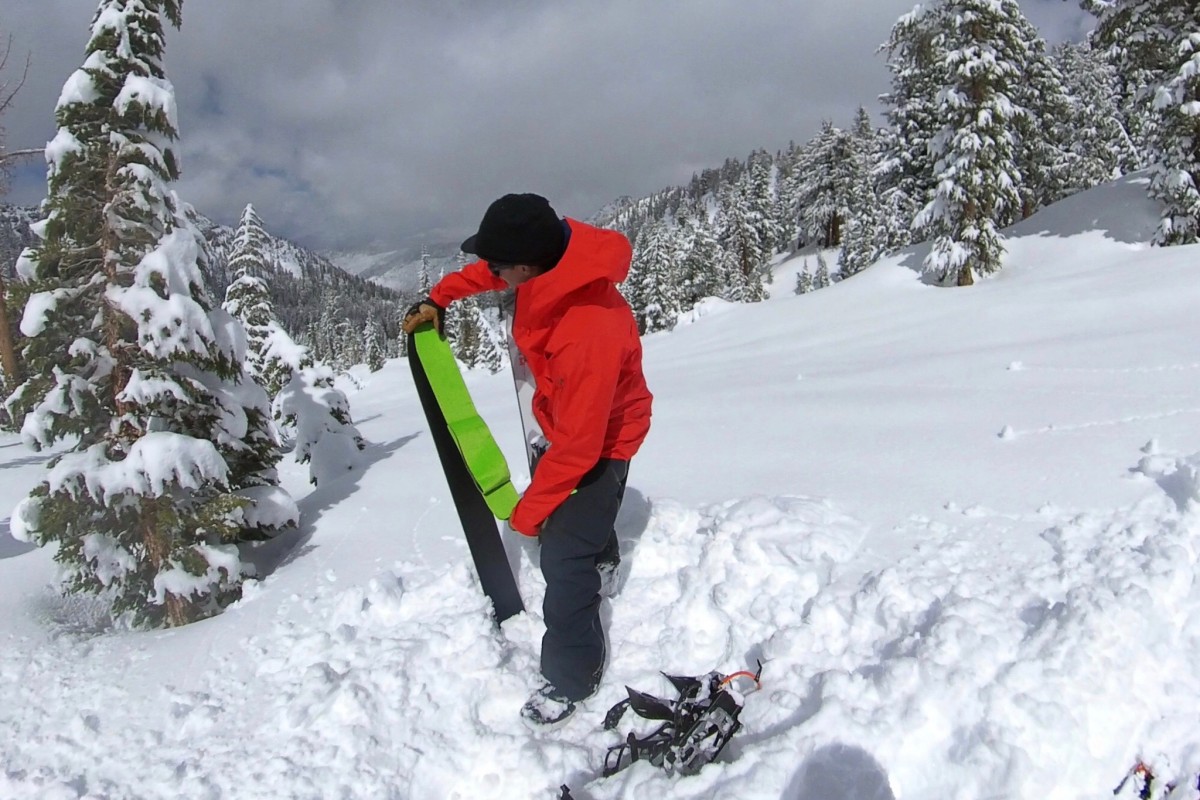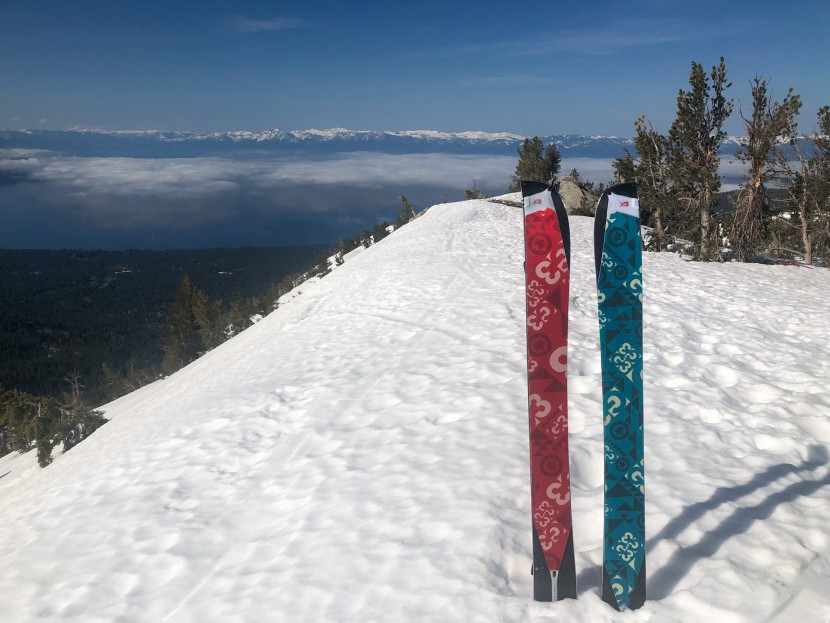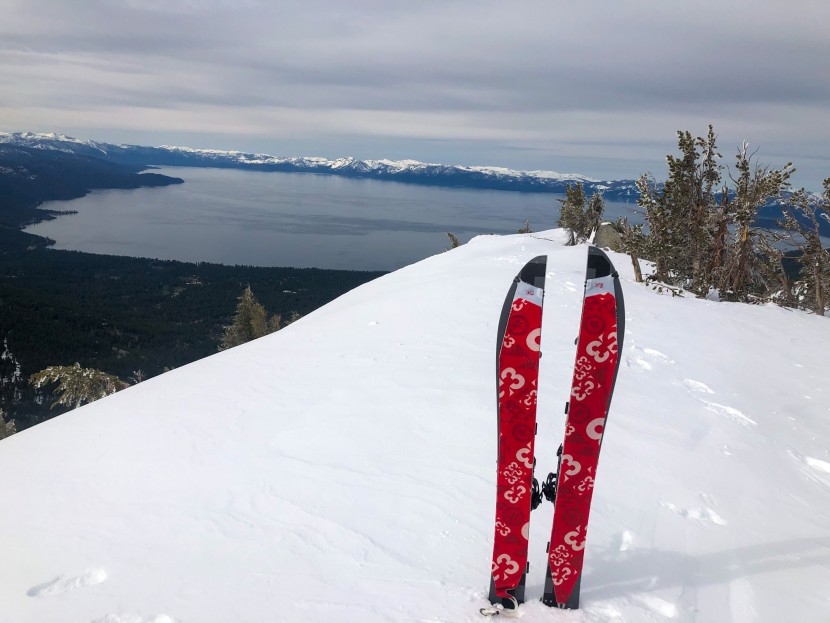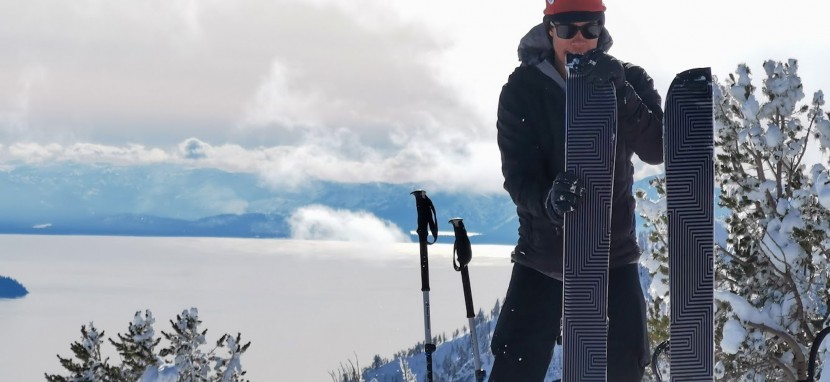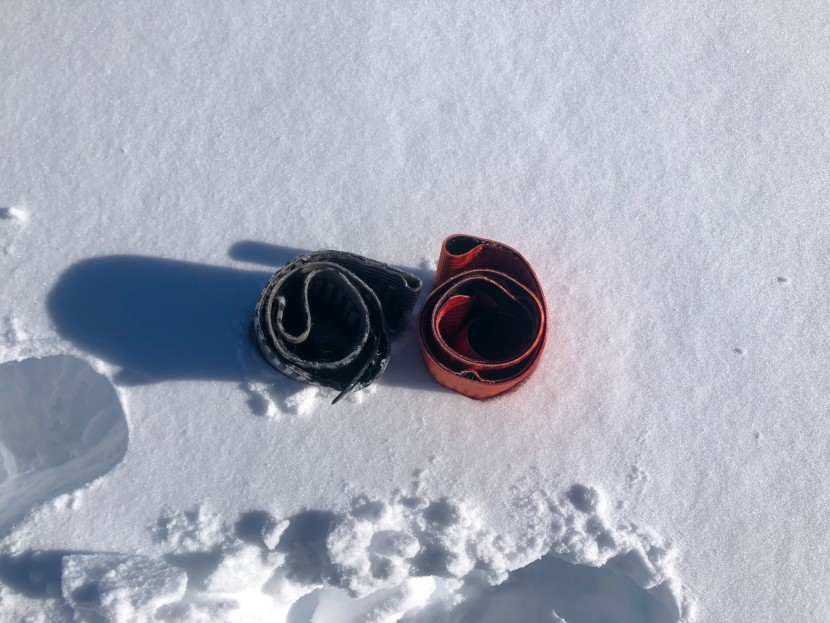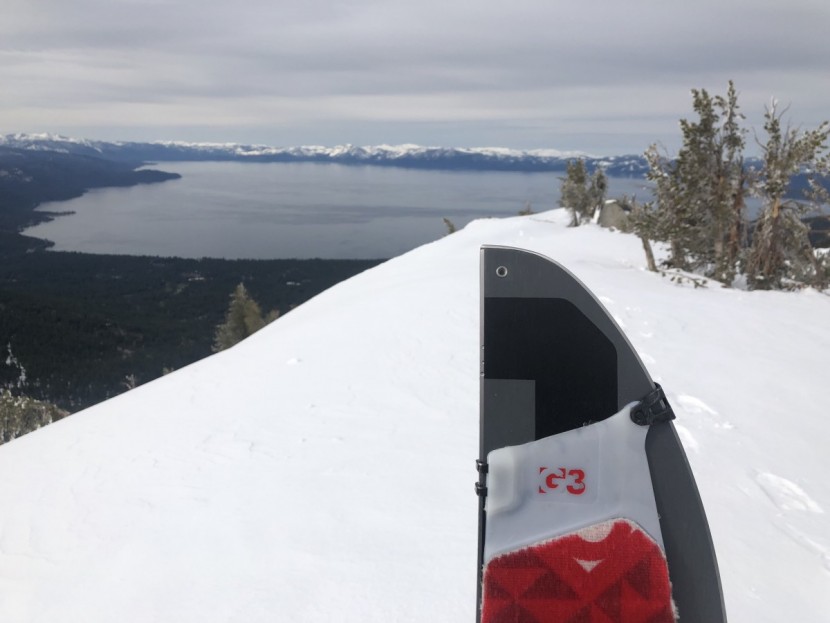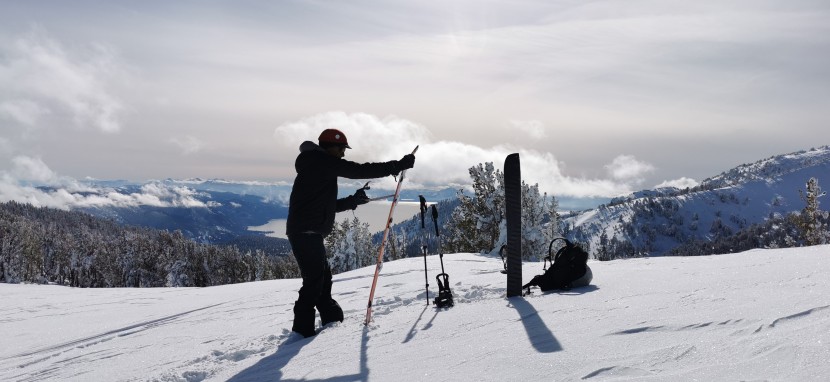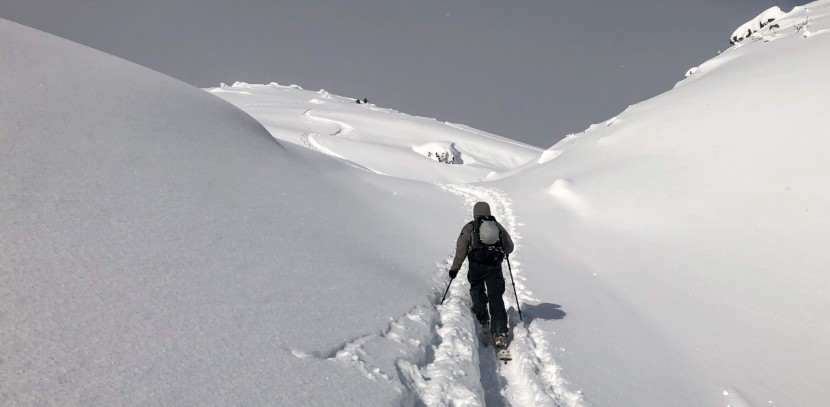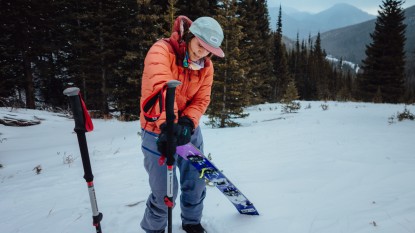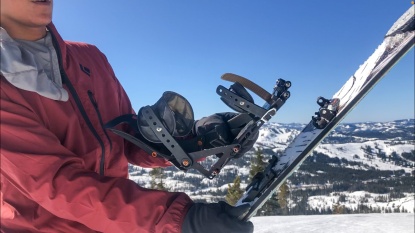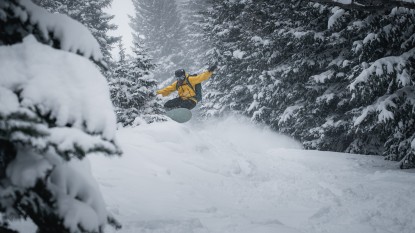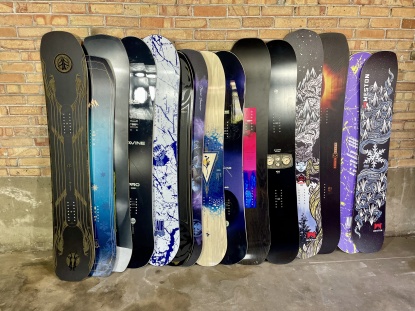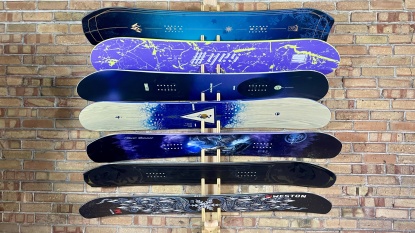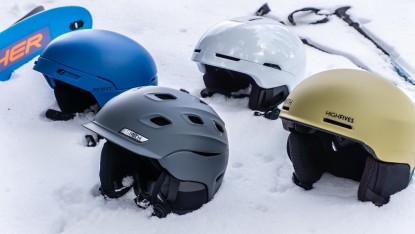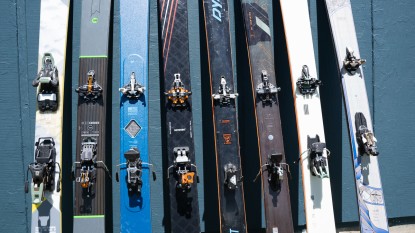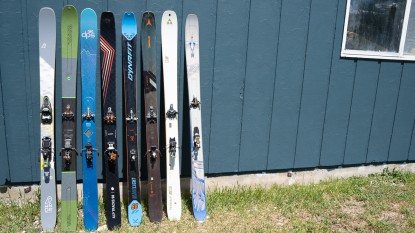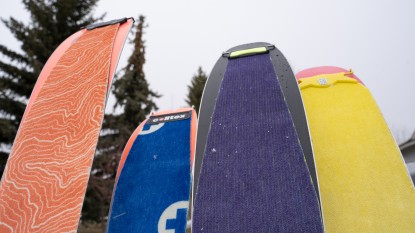What goes down must first go up; climbing skins are what allow us to move uphill. Skins are a critical component of our kit; our absolute reliance means we require consistent performance from this piece of gear. You can choose from different brands, design goals, and materials, and each product offers the basic function of gripping on angled slopes and gliding on flatter pieces of terrain, but not all are the same. As splitboard skins have evolved, different styles have become tailored to fit use-specific needs, and sometimes this can lead to confusion in the category. Which one is going to work best for you? We are here to help you decide with the advice we give our clients, students, and friends.
The purpose of splitboard skins is to provide traction so you can ascend the snowy slopes that you plan to shred down later (the fun part). Since the emphasis is on the uphill here, priorities are different from what you would select for other snowboarding gear. Efficiency is everything, and it comes from three key design components: the carpet, the attachment system, and the glue, each of which has a distinct job. The carpet must slide forward on the snow while maintaining a downward grip to prevent you from sliding. The attachment system must allow for a secure and easy-to-use interface with your snowboard's tip and tail. The glue must be sticky enough to stay put on the base of your board but remain easy to pull off and apart from itself later.
How to Choose a Splitboard Skin
The tasks we ask of our skins are polar opposites; we want them to grip well and glide effortlessly. While you can't expect perfection on both ends, being clear about what your needs are can help you find a compromise you are willing to accept. The carpet type is the main decision to make, and then you can fine-tune your product selection from there.
Carpet Style
One of the first differences you will find in skins is the materials that make up the carpet. You will most commonly find nylon, mohair, or a blend of the two.
Nylon
Full nylon carpets are typically known for having better grip, and because of this, they are often found on introductory skins. If you are a beginner, you will appreciate maximum grip to help get you up the hill while you hone your skinning technique. The synthetic material also tends to be more durable and more affordable, making it a good choice for those just getting started. The downside is that they are heavier and don't glide uphill as freely as mohair carpets.
Glide is the amount of friction that occurs between the plush of your skin and the snow. Glide directly relates to your efficiency on the skin track. With more glide, you can travel farther per stride, resulting in fewer and easier steps over the course of your tour.
Mohair
Mohair is processed wool from an Angora Goat. A 100% mohair skin is a rather specialized piece of equipment for ski mountaineers or skimo racers looking for the lightest option that offers top-tier levels of glide. If you are suiting up for a skimo race, then your setup should definitely include a 100% mohair plush. They offer adequate grip for those who have mastered skinning technique, but it might not be enough for anyone who's still working on their form. The true benefit is the efficiency, and this style is great for elite endurance athletes touring in low-angle terrain for long distances.
Mohair/Nylon Mix
Most splitboarders will be happiest with something in the middle; enter the blended skin. It's likely that even if you are a beginner, you will quickly outgrow the grip benefits and learning benefits of full nylon skins. On the same note, most people will never find the time to use the mohair ski mountaineering skin. Mixed skins attempt to offer the best of both worlds by blending each material's benefits while managing the trade-offs. Those who want to pick up the pace will appreciate that they glide better than pure nylon skins, but if your technique isn't perfect yet, you still have the benefit of added grip. They are more durable and water-resistant, and some modern options are almost as light and packable as full mohair. Most hybrid skins have a 70% mohair and 30% nylon blend.
Attachment System
After deciding what type of carpet suits you best, you can consider different attachment systems. Attachment systems include a toe loop and a tail clip that fasten the ends of the skin to the tip and tail of your board. Manufacturers are getting creative in adapting their clips to different board shapes, and to be clear, they all work, but some are more user-friendly and secure than others. Some feature a simple metal loop that slides over the tip, while others offer more adaptable shapes that hook onto the edges of the board via independent clips. Note that some skins require you to install your tail clip before the first use, which takes more effort.
Glue
Glue and waterproofing are the final considerations. Ideally, the skin is easy to pull apart when folded together, but is sticky enough to remain secure on the base when touring. A bit of a challenge, but there is a sweet spot here, and the best skins maintain this ideal level of stickiness over time. Some have rip strips, a length of material that runs all or some of the length of the skin, which makes the skins easier to rip apart. If your glue is beginning to wear out, rip strips can also be used to expose fresh glue and buy more time before regluing your skins. You'll also want to look for skins with a waterproof coating to prevent failure due to moisture.
Know Your Priorities
It's important to know where you fall in these categories and how much you need. Beginners, take note that with the proper technique, you can find plenty of grip on any skin. While you may feel more comfortable on 100% nylon skins in the beginning, as your technique improves, the benefits of a full nylon skin begin to dwindle, so we recommend buying with growth in mind. Every tour has thousands of steps, and you improve with every tour. If we're doing the math right, this means thousands of opportunities to fine-tune your skinning. There will be times when you wish you had better grip, but more often, you will be thankful to save some energy with efficient glide.

